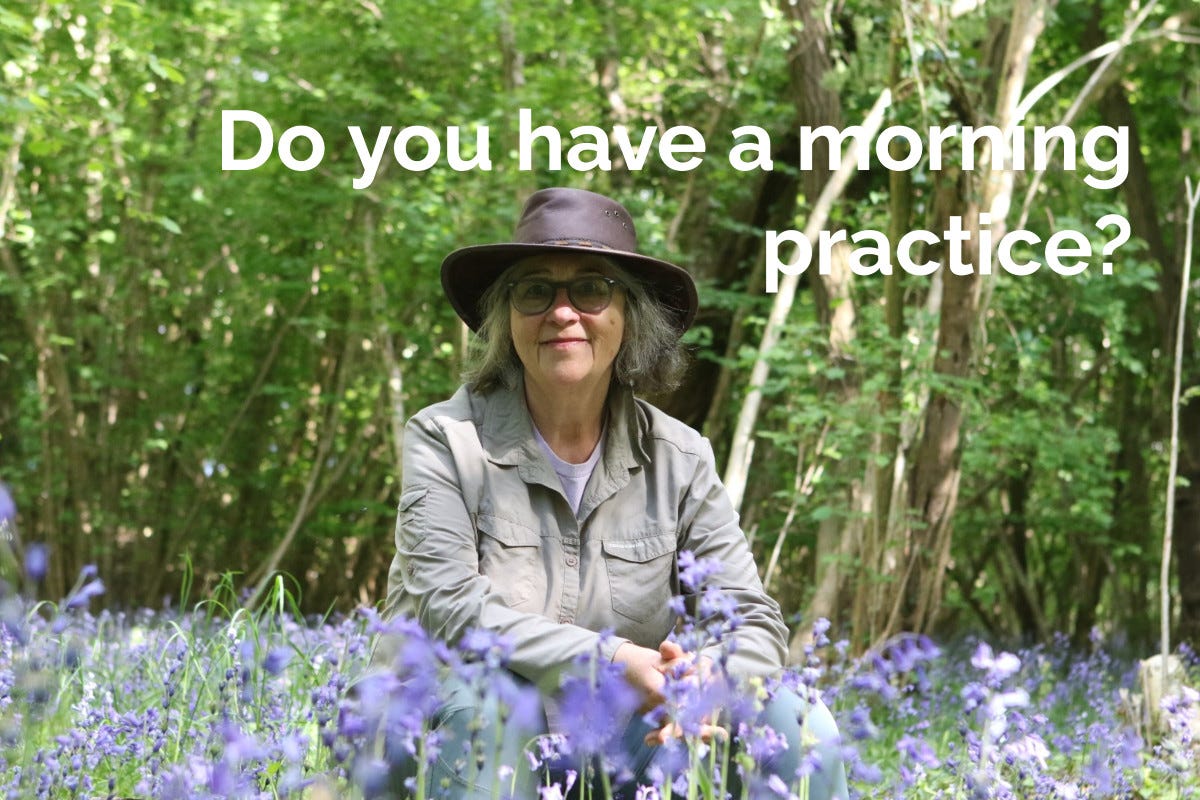In later life, how we start the day becomes more than habit. It becomes a choice, and, sometimes, a quiet act of reinvention.
The structure of full-time work may be behind us. The urgent roles of parenting or caregiving may have shifted. Our mornings, once compressed and task-driven, may now stretch with unfamiliar space. That space can be liberating, or disorienting.
A morning practice offers a gentle anchor. It reminds us we are still shaping the day, and that this chapter of life belongs to us.
🌿 I recently filmed a short reflection while sat in my wood, after brushing my tent. I hadn’t thought of this as a morning practice until now, but perhaps it is. A small, mindful ritual that marks the shift from arriving to being. If you're curious, you can watch it here:
Why morning practices matter in later life
Morning practices (sometimes called rituals or routines) are simply intentional actions that help us step into the day with awareness. They might be reflective, creative, embodied, or restful. What matters is that they are chosen, not rushed, not inherited.
In the context of ageing reimagined, they take on deeper meaning. They become:
A way of reclaiming rhythm in a life that’s no longer dictated by the clock-in, clock-out structure of employment
A space for identity beyond job titles, productivity, or caring for others
A foundation for vitality, mental, physical, and emotional
A moment of sovereignty, where we tune in to what matters now
Some ideas to try
There is no “ideal morning.” Only what works for you. But here are a few invitations:
To ground and arrive
Sit quietly with a warm drink, noticing the light
Write down a word or phrase to carry into your day
Light a candle and take three long, conscious breaths
To move and awaken
Stretch, walk, or dance to music for five minutes
Step outside and greet the morning, barefoot, if you like
Gently activate the body in a way that feels kind




